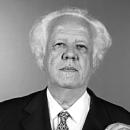
Code-switching is the new mainstream
MÁS EN ESTA SECCIÓN
In linguistics, code-switching happens when someone alternates between two or more languages in a single conversation. Almost everyone at AL DÍA routinely code-swtiches from Spanish to English and back again.
Since more than half of Latino adults who are English speakers say they can speak both languages very well (according to a May 2015 Pew report), they’re probably happily code-switching linguistically too. And this is one of the reasons why our website aldianews.com was built to be a code-switcher — it can toggle between languages and code-switches not only words, but typographic and stylistic conventions.
But that is not the only reason.
Another reason to build our website as a code-switcher was to enable those who can’t speak Spanish to read the stories we tell, and hear the Latino voices we amplify — while remaining true to our roots, our culture and our longtime readership. It is, to put it plainly, a way to make the city’s news much more expansive and inclusive.
It has, by and large, been a wonderfully successful gambit. Many of the readers who loyally comment on our stories and routinely interact with us on Facebook, Instagram and Twitter would not be there if we were only publishing in one language or the other.
Among those are a number of our media colleagues who, for the first time in the 20 years we’ve been around, have a chance to hear what we (and those in the pages of our newspaper; on our website; and attending the live, editorially centered events we’ve pioneered) have to say about things in our city.
A few have not dealt well with this “sudden” intrusion of “unfamiliar” voices in the conversation they’ve long been having unilaterally with Philadelphia, and in their panic, would like to pretend all voices but their own are foreign babble, and not worthy of addressing with honesty or respect. Code-switching and code-switchers, it seems, really frost their cookies.
But here’s the thing: Philadelphia has always been something of a code-switcher.
Not linguistically, of course, but during that “heyday” columnists and legacy newspapers like to look back to with nostalgia, the city code-switched between the Philadelphia of Old Original Bookbinder’s, Nan Duskin and girls with Bryn Mawr accents who really knew how to rock a pair of jodhpurs, and the Philadelphia of labor unions, boxing clubs, folks who added extra syllables to Olney and understood the significance of stoops.
The city’s growth of the past 10 to 20 years has been led by immigrants who code-switch from Spanish, Korean, Chinese, Portuguese, Gujarati and all manner of other languages. But their code-switching isn’t limited to linguistics; it has great cultural and economic impact as well, and that impact is more visible and more integral every day to Philadelphia’s future.
You need look no further than the fact that Ecuadorian immigrant and Philadelphia restaurateur extraordinaire, José Garcés, reopened the shuttered landmark Old Original Bookbinder’s earlier this year.
Or look to Lincoln Financial Field — the Philadelphia Eagles’ home stadium which seats 69,176 people — which just this past weekend saw an attendance of 68,930 for soccer’s CONCACAF Gold Cup final between Mexico and Jamaica.
Or look at the code-switch revitalization of the Italian Market and the 5th Street corridor.
Or look at how the city’s mural commemorating the visit of Pope Francis this September is being painted by a Philadelphia Mexican muralist on the walls of a North Philadelphia school first founded to serve Irish immigrants in the 1860s, and now educating African American, Latino and immigrant children of diverse backgrounds.
Code-switching, you see, is the new mainstream. And we love it.
We will, in the next number of weeks, be sending invitations out to politicians, elected officials, cultural czars and media mavens to participate with us in a public discussion about just this.
And for those Philadelphians who are still reluctant to attend to this sea-change, we say this is the moment to stop suffering the shift in current. It is unstoppable, and something rich and strangely wonderful lays beyond the shoal on which you are stranded. We can see ahead: there is multiplicity, diversity and an ever expanding mainstream before you.






DEJE UN COMENTARIO:
¡Únete a la discusión! Deja un comentario.